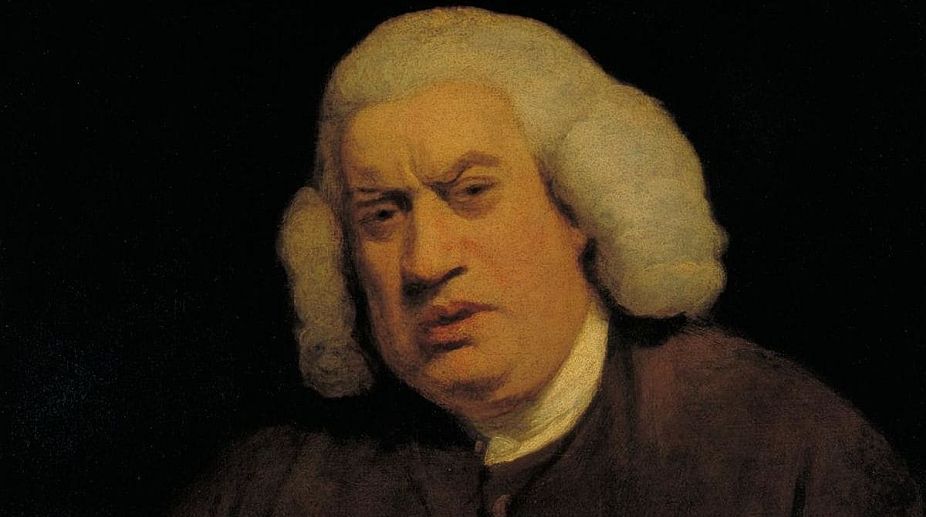Youth stabbed to death on his birthday eve in South Delhi
Among three teenage accused was a neighbour of the deceased whose family is said to have a long running fued with that of the deceased.

(Photo: samueljohnson.com)
Dictionaries as books may be vanishing fast, but before the onset of the Internet, they were the only source to know a word’s meaning, pronunciation, origin etc.
Google on Monday honoured Samuel Johnson, the father of modern dictionary, with a doodle on his 308th birthday.
Advertisement
Samuel Johnson, a British lexicographer (a person who compiles dictionaries) published the ‘Johnson’s: A Dictionary of the English Language’ in 1755 after working on it for nine years. He has been described by the Oxford Dictionary of National Biography as “arguably the most distinguished man of letters in English history”.
Advertisement
Son of a bookseller, Samuel Johnson was born in 1709. After working as a teacher, he moved to London, where he began to write for The Gentleman’s Magazine. His early works include the biography Life of Mr Richard Savage, the poems ‘London’ and ‘The Vanity of Human Wishes’, and the play, ‘Irene’.
After a series of illnesses, he died on 13 December 1784, and was buried in Westminster Abbey. In the years following his death, he began to be recognised as having had a lasting effect on literary criticism, and he was claimed by some to be the only truly great critic of English literature. Dr Johnson also spent years creating a collection of the works of William Shakespeare.
Johnson’s dictionary is said to have just 42,773 entries, compared to more than 250,000 words in the English language, and was reportedly sold at a £4 10s at the time (which is said to be equivalent to £350, or Rs 30,500, today).
“Johnson’s dictionary was more than just a word list: his work provided a vast understanding of 18th century’s language and culture. His lasting contributions guaranteed him a place in literary history,” Google said.
Advertisement